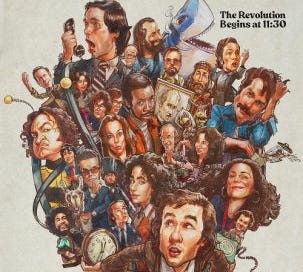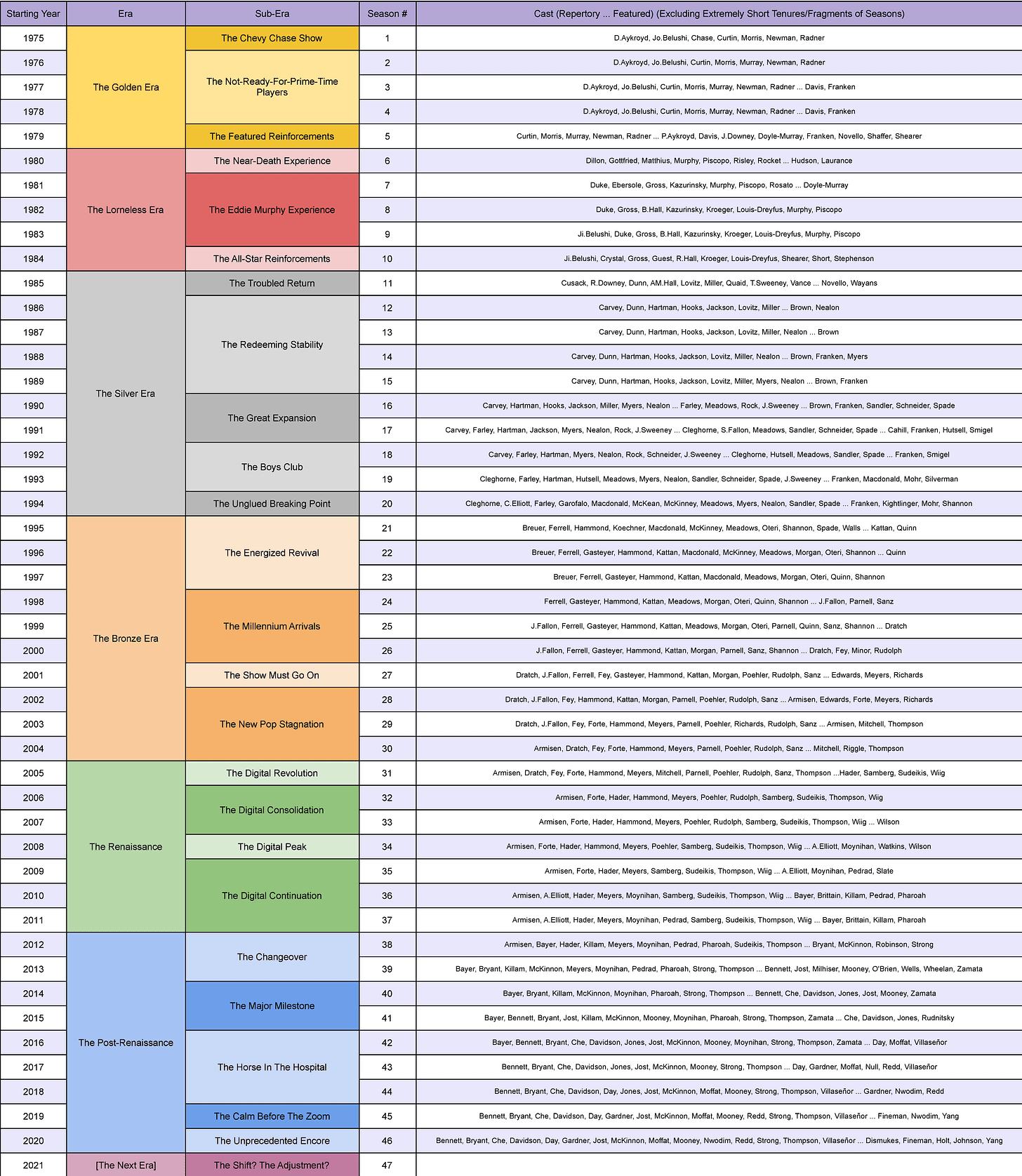StubStack: Saturday Night
Saturday Night is about the chaotic 90 minutes leading into the first episode of Saturday Night Live (SNL) on October 11th, 1975. The film follows a young Lorne Michels, the show's creator and producer, as he wrangles a rambunctious cast and crew and prepares for the now legendary show's first episode.
I was born in 1995, and like with music or movies, our favorite SNL era is often the one that took place during our high school years. For me, my introduction to Saturday Night Live came a bit earlier. My mom and aunt were the ones who first exposed me to the show when I was a pre-teen. Most of my SNL viewing happened between 2006 and 2012. During that time, I became a fan of cast members like Bill Hader, Tina Fey, Fred Armisen, Amy Poehler, Maya Rudolph, Kristen Wiig, and Andy Samberg. I also grew up watching iconic sketches, such as Will Ferrell and Christopher Walken in the "More Cowbell" skit, and Chris Farley’s unforgettable "Van Down by the River."
Someone on Reddit created an interesting breakdown of SNL, dividing the show into specific eras. My era would be The Renaissance, what’s yours?
Like many Americans, Saturday Night Live has been a part of my life for a long time. However, its relevance in my life, and American life, has dwindled. I don’t know much about its history before the 1990s, and I have little knowledge of its inception. I think this lack of familiarity with SNL’s early days and its original cast helped me enjoy Saturday Night Live more.
Had I been more familiar with figures like Chevy Chase, Dan Aykroyd, Gilda Radner, John Belushi, and others from the show's early years, I might have been more critical of their portrayals. The same goes for my understanding of television production and how networks were involved during the 1970s. My ignorance of these details likely made watching Saturday Night a more enjoyable experience, as I didn’t have any references to compare what was on screen.
One thing holding this movie back is that it doesn’t have much to say. It’s not really about anything beyond the show itself, its out-of-the-box nature for the time, and the obstacles involved in launching such an unconventional television product. As a result, the film ends up feeling a bit empty.
Saturday Night’s frenetic energy is what makes it fun, and so do the performances. I especially enjoyed Dylan O’Brien as Dan Aykroyd and Cory Michael Smith as Chevy Chase. Neither of them performed as caricatures and both were incredibly funny. Chase’s sharp, clever assholery and Aykroyd’s charming affability were a joy. Gabriel LaBelle, as Lorne Michaels, was also great. He’s been in some good films recently—most notably The Fabelmans and Snack Shack—LaBelle is an actor to keep an eye on. I also really liked Rachel Sennott as Rosie Shuster and found myself wishing we could’ve spent more time with her character.
That’s another flaw of Saturday Night: there are so many characters that we don’t get enough time with most of them. There’s no one to latch onto because, aside from Michaels, none of the characters are given enough depth for the audience to form a meaningful connection. And frankly, that goes for Micheals as well. As a result, the film feels a bit shallow and the characters feel underdeveloped.
Despite the shortcomings of Saturday Night, it’s still an enjoyable and entertaining movie centered around a subject with a rich and enduring history. Because of this, I could see it becoming a recurring intellectual property if the creators wanted it to be. The next film could focus on the Eddie Murphy era of Saturday Night Live and the wild partying of the 1980s. Another could explore the Sandler, Myers, and Farley years, and so on. I believe there’s enough interest in those celebrities and their time on the iconic show to justify further films. While I’m not necessarily interested in seeing that myself, I can understand the appeal and the motivation of pursuing it.
Saturday Night is straightforward and uncomplicated. It’s fun, but ultimately forgettable.




